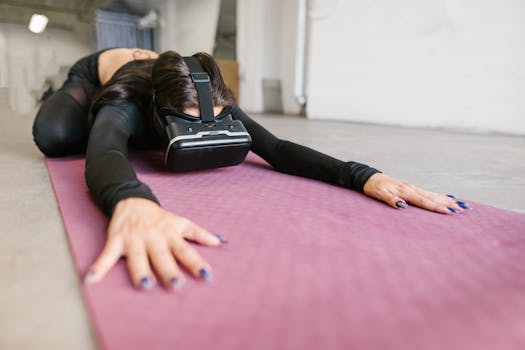Boost Your Mood: How Exercise Can Help Manage Anxiety and Depression
Takeaways: Exercise is a natural remedy for anxiety and depression, offering benefits like improved mood, reduced stress, and increased energy levels. A simple workout can elevate your spirits, so let’s explore how to make it a part of your daily routine!
Hey there, friend! Have you ever felt that weight on your chest when anxiety creeps in or those heavy clouds of depression start to settle? Trust me, you’re not alone! I’ve had my fair share of days where getting out of bed felt like a monumental task. But here’s something I’ve discovered: exercise can be a powerful ally in managing those feelings. Let me share how moving my body changed the game for me.
The Science Behind Exercise and Mental Health
So, why does exercise have this magical power over our mood? Well, it’s all about the endorphins! When you exercise, your body releases these little feel-good chemicals that can help reduce feelings of anxiety and depression. It’s like nature’s very own mood booster!
Research has shown that regular physical activity can have a profound impact on mental health. Studies reveal that people who engage in regular exercise report lower levels of anxiety and depression. Plus, it can help you sleep better, which is crucial since poor sleep can exacerbate mental health issues.
For me, I started with simple walks around my neighborhood. It was just me, some fresh air, and a podcast. I quickly found that my mind became clearer, and I felt lighter. It’s incredible how a little movement can make such a difference!
Finding the Right Type of Exercise for You
Now, let’s talk about what type of exercise to try. The beauty of it is that there’s no one-size-fits-all! Whether you’re into running, yoga, dancing, or even just a brisk walk, the key is to find something you enjoy. That way, it won’t feel like a chore, but rather something you look forward to.
I’ve dabbled in various forms of exercise, but I found my groove with a mix of yoga and hiking. Yoga helps me center my thoughts and breathe through the anxiety, while hiking allows me to connect with nature and feel a sense of adventure. Think about what makes you happy and go from there!
Don’t forget, even small amounts of exercise can be beneficial. Start with just 10 minutes a day and gradually increase. You’ll be surprised at how much better you feel!
Creating an Exercise Routine
Now that you’re ready to dive into exercise, let’s discuss how to create a routine that sticks. Consistency is key! I recommend setting aside specific times in your week dedicated to moving your body. Treat it like an important appointment that you can’t miss.
Another tip is to find a workout buddy. Having someone to join you can make it more fun and hold you accountable. Plus, it’s a great way to catch up and bond over shared experiences. I’ve had some of my best chats while sweating it out with friends!
And remember, be patient with yourself. There will be days when you don’t feel like working out, and that’s okay. Just show up for yourself when you can. Every little bit counts!
Real-Life Stories: How Exercise Changed Lives

Another story is from a colleague who took up dance classes as a form of exercise. Each class was a chance to express herself and let go of stress. She found that dancing not only boosted her mood but also helped her tackle anxiety. The joy of moving to music was something she never knew she needed!
FAQs
Q: How much exercise do I need to see a difference in my mood?
A: Even a small amount of exercise, like 10-15 minutes a day, can help improve your mood. Aim for at least 150 minutes of moderate exercise per week for optimal benefits.
Q: What if I don’t enjoy traditional exercise?
A: That’s totally fine! Try activities like dancing, gardening, or even playing with your kids or pets. The key is to find something that feels fun and engaging for you.
Q: Can exercise replace therapy?
A: While exercise can be a fantastic tool for managing anxiety and depression, it’s not a replacement for professional help. If you’re struggling, it’s important to speak with a mental health professional.
Q: How do I stay motivated to exercise regularly?
A: Set realistic goals, track your progress, and mix up your routine to keep things fresh. Finding a workout buddy can also help keep you accountable and motivated!






